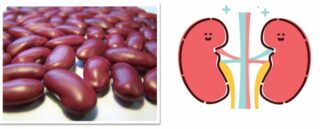Q Exchange
Improving Acute Kidney Injury follow up Clinics utilising technology
- Proposal
- 2020

Meet the team
Also:
- Kathryn Johnson, Acute Kidney Injury Advanced Nurse Practitioner
- Charlotte Marshallsay, Acute Kidney Injury Trainee Advanced Nurse Practitioner
- Sarah Bradburn, Chief Informatics Nursing Officer
What is the positive change that has emerged through new collaborations or partnerships during Covid-19 that your project is going to embed?
We initially set up our acute kidney injury (AKI) follow up clinic in April 2019 to reduce hospital admissions within 90 days of an episode of inpatient AKI. This was to reduce AKI recurrence post discharge, to optimise medications in the initial post discharge period and to improve patient awareness of AKI (including appropriate safety-netting advice). This was through a combination of face-to-face and telephone appointments depending of severity of AKI.
During the restrictions of Covid 19 we had to temporarily suspend our face-to-face clinics and switch to telephone reviews only. This restriction prevented us from completing more thorough assessments on our more vulnerable patients and increased our telephone clinic workload.
UHS have embedded attend anywhere for virtual clinics- however many of the patients who have AKI do not have access to the required technology, or the skills to use this and we wish to use patients co-design to review this service.
What does your project aim to achieve?
We reflected on our service and have conducted a patient satisfaction survey over the past few months to seek to improve our clinic service. These early themes prompted a review of how we conduct clinic and if we could streamline and collaborate patient contact with healthcare in line with the NHS long term plan to support people to age well by bringing together different professionals to coordinate care better. We are also looking at improving collaboration with other key specialities that are commonly seen with patients with AKI (e.g. urology, heart failure, diabetes) and utilising technology to implement virtual clinics. The AKI patient group consists of a large number of patients who are not experienced in utilising technology for medical reviews and we will aim to use patient experience to co-design a clinical service that meets patients technological needs.
How will the project be delivered?
When successful we will temporarily expand the AKI team to include a team member whose role will be to develop the AKI clinic further utilising technology for the clinic visits, the giving of information through patient accessible records. The team will host a patient experience focus group to ensure that the outcome is co-designed with the Southampton patient cohort at it’s heart.
Within the first 3 months we aim to liaise with our digital development team to see what models of virtual clinics are available and aim to trial this with our AKI clinic patients. A further patient focus group will be used post the implementation of the clinic to continue its development.
Alongside this we will be liaising with the key specialities where AKI are most common (Heart Failure / urology) to set up joint clinics to help streamline patient contact and improve education / patient support.
How is your project going to share learning?
The collaborative clinical working will be shared through the AKI national network, for which Becky Bonfield is co-chair. This network is supported by the Renal Registry and has an excellent track record for sharing improvement through their KQuIP programme.
University Hospital Southampton NHS Trust is a global digital exemplar site (GDE) and therefore we will be able to share our learning regarding utilising virtual clinics through this workstream.
We are aiming to get this work published and presented at UK Kidney Week 2021 to assist in the dissemination of this work to a wider audience.
How you can contribute
- A networker who can link our team to others using similar technology in order to help design the clinic and include patient feedback
- An expert in virtual clinics who can advise regarding our clinic structure and potential solutions for this.
- An expert in combined clinics who can advise on joint working and how to set up effective collaborations (promote positive change)
- A collaborator to work together on future project and we can share ideas and who may have experience or suggestions for helping patients engage with new technology.
Plan timeline
| 18 Jan 2021 | liaise with technology team to review technology applications options |
|---|---|
| 25 Jan 2021 | identify applications best suited to AKI clinic |
| 15 Feb 2021 | recruit ANP to post |
| 1 Mar 2021 | set up working group / patient collaboration group |
| 15 Mar 2021 | using working group discuss applications and identify best fit |
| 19 Apr 2021 | trial application with clinic |
| 10 May 2021 | conduct review of 1 month of clinic data PDSA cycle |